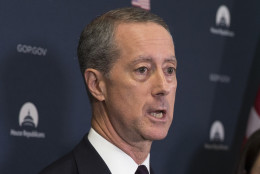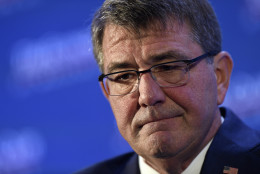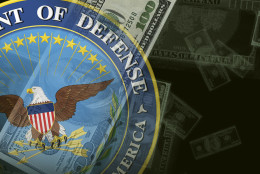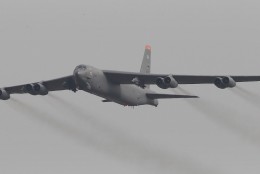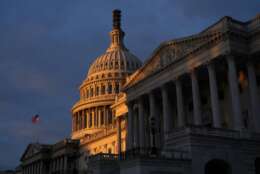Hubbard Radio Washington DC, LLC. All rights reserved. This website is not intended for users located within the European Economic Area.
Todd Harrison
-
President Trump's pick to head the Air Force is highly qualified, but some experts think her business connections are dubious.
January 26, 2017 -
Boeing and Lockheed have both responded to complaints by President-elect Donald Trump over the cost of signature airplane projects. But what does this say about how contracting much less Defense policy will operate under the Trump administration? For some answers, Federal Drive with Tom Temin turns to Todd Harrison, director of defense budget analytics at the Center for Strategic and International Studies.
January 09, 2017 -
The House Armed Services Committee Chairman is hoping President-elect Donald Trump will introduce a supplemental defense budget when he gets in office.
November 30, 2016 -
Familiar debates over the caps set in the Budget Control Act will crop again during the next administration, defense budget analyst Todd Harrison said at a press briefing marking the fifth anniversary of the 2011 law. The Defense Department has avoided many of the dire consequences it predicted would happen during 10 years of "devastating cuts." But it's used a series of workarounds to dodge many of the impacts.
August 02, 2016 -
The first estimates of the savings realized from the House's plan to reform TRICARE come in around $7 billion.
May 05, 2016 -
The Defense Department builds economic assumptions and cost savings into its budget, but when those savings are too optimistic it hurts critical programs.
February 24, 2016 -
One-year emergency budget spending won't cut it when it comes to modernizing and training the Army, members of the Future of the Army Commission told Congress.
February 11, 2016 -
The Defense budget prioritized research and development and cyber, but that doesn't mean the third offset strategy is getting a lot of money in 2017.
February 05, 2016 -
The Air Force's modernization plans account for a large part of the Defense Department's overall spending to bring weapon systems up to date over the next decade, according to a new study by the Center for Strategic and International Studies.
January 27, 2016 -
Defense Secretary Ash Carter told the Navy to cut back on capacity and invest more in capability in a letter last week.
December 21, 2015 -
With only 10 days left to pass sweeping budget deals and little agreement over proposals, Congress' likely options are pass a continuing resolution, or force a shutdown.
September 08, 2015 -
The Defense Department's nuclear forces arsenal is getting a close look for affordability. Think tanks like the Government Accountability Office and even the Pentagon itself are all looking at how much money the agency should spend on nuclear stock. Todd Harrison is senior fellow for defense budget studies at the Center for Strategic and Budgetary Assessments. He tells In Depth with Francis Rose why he thinks it's important to look at nuclear forces in the context of the whole weapons inventory.
July 31, 2015 -
The Joint Chiefs of Staff added their own recommendations on military retirement reform and sent them to Defense Secretary Ash Carter. Most of their recommendations are similar to proposals in both the House and Senate National Defense Authorization Acts. But the recommendations from the chiefs may throw a wrinkle into the congressional debate. Todd Harrison, a senior fellow for defense studies at the Center for Strategic and Budgetary Assessments, tells In Depth with Francis Rose what the Joint Chiefs are proposing.
June 01, 2015 -
Defense Secretary Ashton Carter will propose a 401k-like retirement program for uniformed military personnel this week. USA today reports the goal is that everyone that leaves the military takes away a retirement fund, even if they don't stay in 20 years. Todd Harrison is senior fellow for defense budget studies at the Center for Strategic and Budgetary Assessments. On In Depth with Francis Rose, he compared the idea to the work he's done on compensation and the work the Military Compensation Commission did.
March 30, 2015



